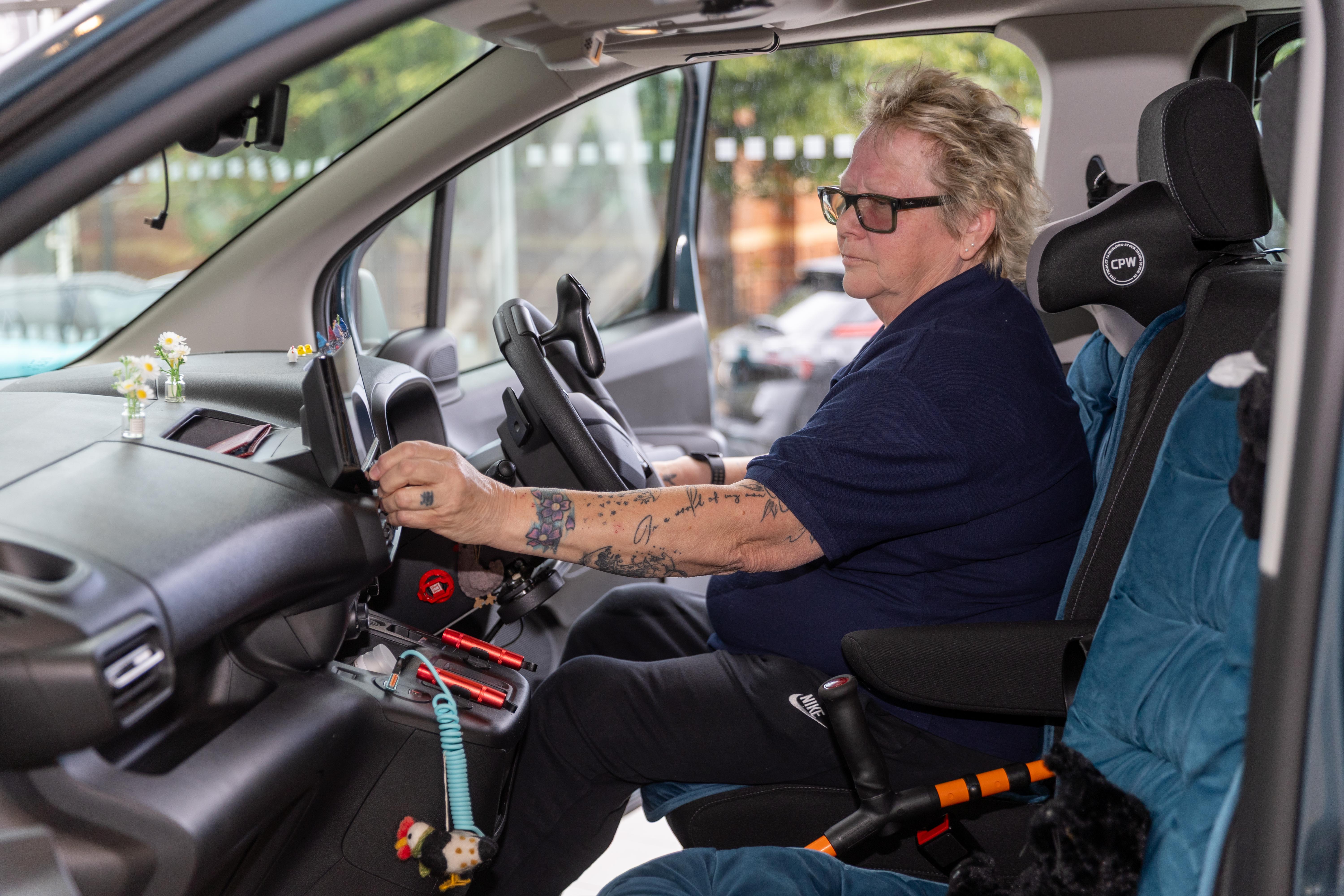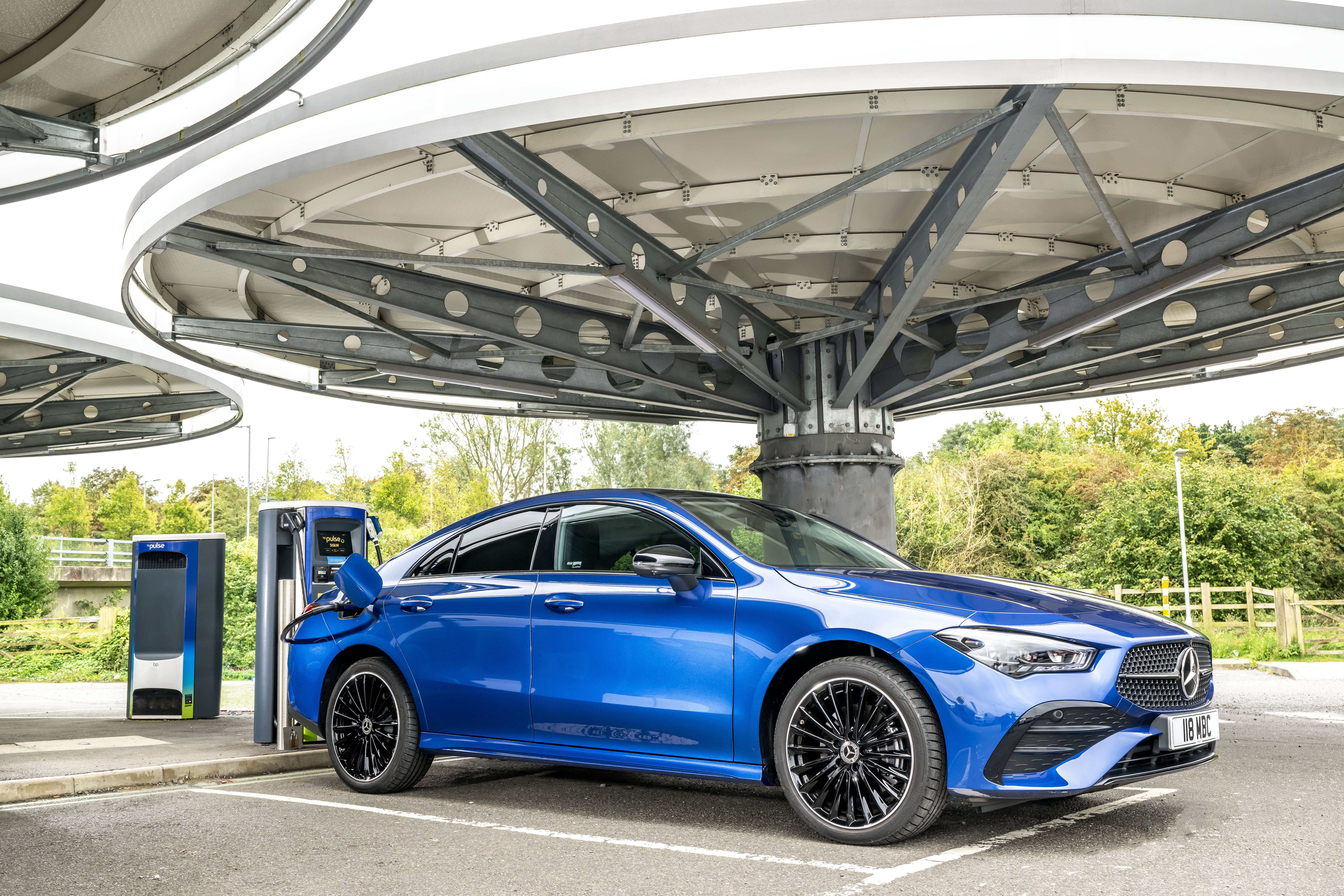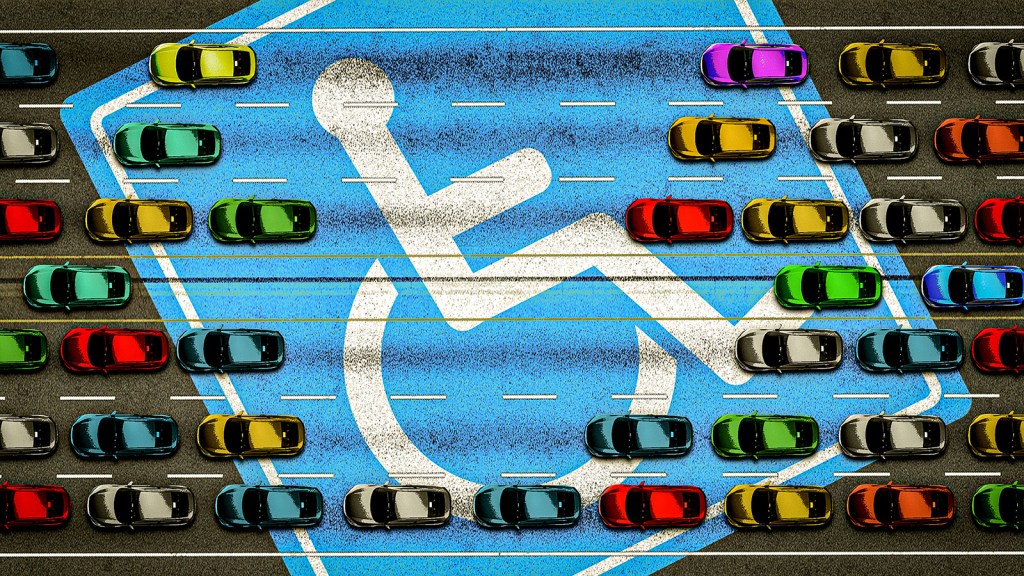Motability CEO Defends Scheme Amid Controversy Over Disability Benefits
Andrew Miller, the Motability chief executive, remains calm despite facing accusations surrounding the scheme, often labeled as “the biggest benefits scam in the UK.”
After meeting at the Leicester railway station, Miller and his team guided a tour of one of the 4,500 Motability-associated dealerships across the UK. They traveled 18 miles to visit a vehicle reconditioning center, where 40,000 end-of-lease vehicles are prepared for resale in dealerships nationwide.
Throughout the day, the ongoing scandal regarding Motability’s role in the welfare system was an ever-present topic of discussion.
Critics claim that Motability has exploited the gaps in the UK’s disability benefits framework, resulting in a significant increase in the number of individuals receiving high-end vehicles, like BMW and Mercedes, with costs covered by taxpayers.

Recent allegations include that individuals with dubious claims, referred to derogatorily as “bed-wetting boy racers” by Reform’s deputy leader Richard Tice, have been awarded state-funded vehicles. Some commentators even question whether benefits could be claimed for conditions like being “fat” or “feeling depressed.”
Miller acknowledged the public criticism, stating, “Unfortunately, it comes with the territory. However, it’s not just water off a duck’s back; it does affect me.”
The Motability scheme began as a charity in 1978 in Earls Court, London, allowing individuals receiving a minimal mobility allowance of £7 per week to lease vehicles like a Ford Fiesta or Mini. Before the scheme, the only option available after World War II was a three-wheeled Invacar, which was later deemed unsafe.

In conjunction with the charity, Motability Operations Ltd was established to manage the program, with major British banks contributing £100 million at its inception. Currently, leading banks like HSBC, Barclays, Lloyds, and NatWest own it, though they do not receive dividends, and profits are reinvested into the scheme.
Since its inception, the scheme has expanded incrementally, but its growth has accelerated post-COVID-19. Critics argue it has attracted individuals who exploit loopholes in the benefits system, particularly with the rise of “sickfluencers” on social media. The number of beneficiaries has surged from 600,000 to 860,000 in just two years.
Motability now accounts for one in every five new cars sold in the UK, compared to one in ten before the pandemic, making it the largest seller of used cars in the country.
The company reportedly holds a fleet valued at £14 billion, with debts of £11 billion. In 2025 alone, it borrowed more money than any other UK public limited company.
As one Times reader remarked in March, “It starts off as a cause, then turns into a business, and finally into a racket.”
Miller firmly disagrees, insisting, “We are a business; we have always been a business. Any notion that we have become a racket is incorrect.”
For many clients, the Motability scheme has been invaluable. Analysis indicates that only 35,899 fraud cases were examined last year, with 5,300 individuals removed from the program.
Louise Miller, 63, from Whitwick, Leicestershire, who has been using the scheme since 1984 after her medical discharge from the Royal Navy, shared her experiences. She happily discusses her current vehicle, a Vivaro Life Electric minivan, equipped with specialized features for her needs.


She finds her car “perfect for her needs” but also expresses concern over those who improperly benefit from the scheme. “I know someone who has a vehicle but spends most of the year abroad, leaving it for family use,” she said.
Miller confirmed that the eligibility for the scheme lies with the Department for Work and Pensions (DWP), not with Motability. As such, he asserts, “The scheme’s growth isn’t our responsibility; it is the government’s decision.” Furthermore, he highlights the financial burden that growth has placed on the company, which had to raise £3 billion more than originally anticipated over the last 18 months.
John O’Connell, CEO of the TaxPayers’ Alliance, noted that the government’s flawed oversight is a significant contributor to the ongoing issues with the Motability scheme. “The responsibility lies with the DWP, not solely with Motability,” he stated.
To qualify for the Motability scheme, individuals must receive the enhanced rate of the mobility component under the Personal Independence Payment (PIP) system, available to those with long-term physical or mental health conditions, facing challenges with everyday tasks or mobility.
Miller acknowledges that with Motability’s extensive scale, some individuals may attempt to exploit the system. “Given our size and demographic, it’s something we must contend with,” he said.
Concerns Over Scheme Generosity
Miller concedes that the scheme serves a vital function in providing mobility solutions where the private sector may fall short. Their analysis indicates half of their customers would struggle to obtain car insurance through retail channels, while a third would fail credit assessments for leasing.
However, he admits that the scheme’s offerings might be perceived as overly generous, acknowledging this is a “valid concern.”
“The package we provide is considerable. It includes the vehicle, insurance, immediate access to a hire car if off the road, and RAC cover, including international protection,” he elaborated. “Has the package perhaps turned out to be a bit generous compared to the retail market? Possibly, and we are currently reviewing certain aspects to address this.”
Miller’s focus for the past two years has included tightening certain policy elements to enhance accountability. He pointed out that they may not have been stringent enough regarding enforcement, such as ensuring customers are penalized for not returning keys, a common practice in retail.


Miller also clarified that the £3 billion in taxpayer cash held by Motability serves a critical purpose, acting as a financial cushion necessary to mitigate fluctuations in vehicle values. He emphasized the importance of maintaining these reserves to ensure the company’s continued ability to manage its debt responsibly.
While critics contend that Motability’s ability to allow vehicle swaps every three years is excessive, Miller argues it is essential for optimizing the value of the vehicles. He indicated that Motability strives for a profitability target of 1.5% on each car, ensuring that a £10,000 vehicle generates sufficient returns through lease payments and resale values after accounting for maintenance and insurance costs.
Miller stated, “We’ve analyzed the best methods for ensuring we optimize returns without overburdening our customers with upfront fees.”
Potential Impact of a Crackdown
With Motability’s significant economic influence, some speculate it has reached a status of being too big to fail. Miller responded, “That’s for others to decide. Our growth was not by design; it was not our goal.” He confirmed, however, that if the government were to significantly lower the number of claimants, the company would adapt the scheme accordingly.
While potential measures to tighten eligibility are being discussed, such actions could have drastic implications for the UK automotive market. Miller emphasized, “We have become a crucial part of the UK car market,” especially as Motability now purchases one in five newly sold vehicles in Britain, which could significantly impact struggling manufacturers as UK car production faced recent declines.
Moreover, a downsized Motability scheme could affect the supply chain for used cars, as many of the vehicles leased are later sold to dealerships. Robert Forrester, chief executive of Vertu Motors, suggested that consumer demand for cars would persist regardless of welfare benefits, stating, “We would see a shift in demand towards new and likely used cars.”
Yet, Miller expressed concern over the ramifications, indicating, “Some dealers rely on us for up to 50 percent of their stock.” Ultimately, he underlined, “The sustainability of the scheme is my primary concern. Other issues, such as residual values or employee well-being, are also significant.”
“Media scrutiny can be beneficial, even if it sometimes feels unfair. It’s an important aspect of accountability. Although it can feel personal, it’s crucial for transparency,” he concluded.
The Costs and Options in the Scheme
Motability customers can select from 889 car options by exchanging some or all of their weekly mobility benefits for a vehicle. More costly vehicles may necessitate upfront payments of up to £8,395, with potential refunds of up to £350 available at lease end for the condition of the returned vehicle.
Mercedes-Benz CLA Coupe CLA 250e AMG Line

This luxury vehicle requires an initial payment of £7,999 and can reach speeds of up to 142 mph.
Nissan Qashqai

A popular choice among Motability clients, with upfront payments starting at £499 depending on the model.
Dacia Spring

The all-electric Dacia Spring is the most affordable option on the scheme, requiring no initial payment and costing £60 per week deducted from benefits.
Source: Motability




Post Comment